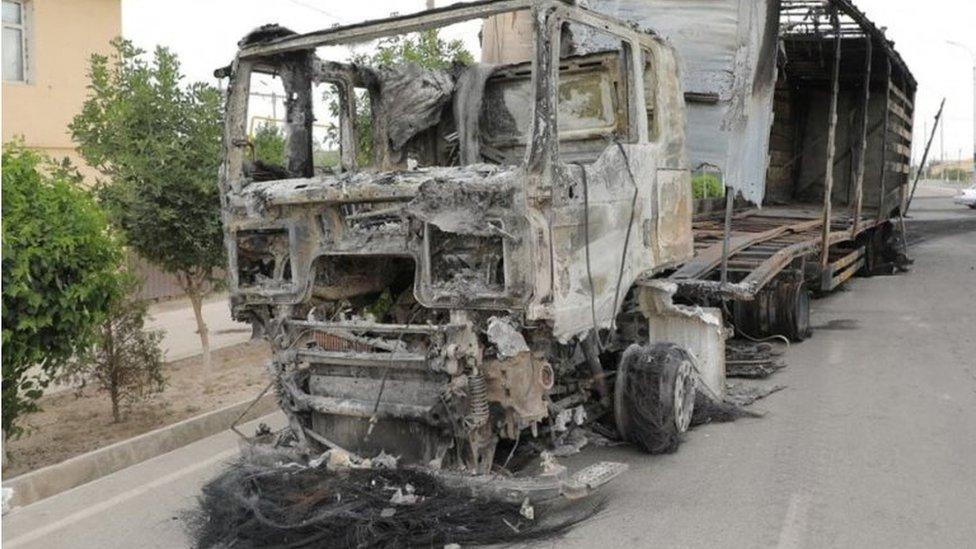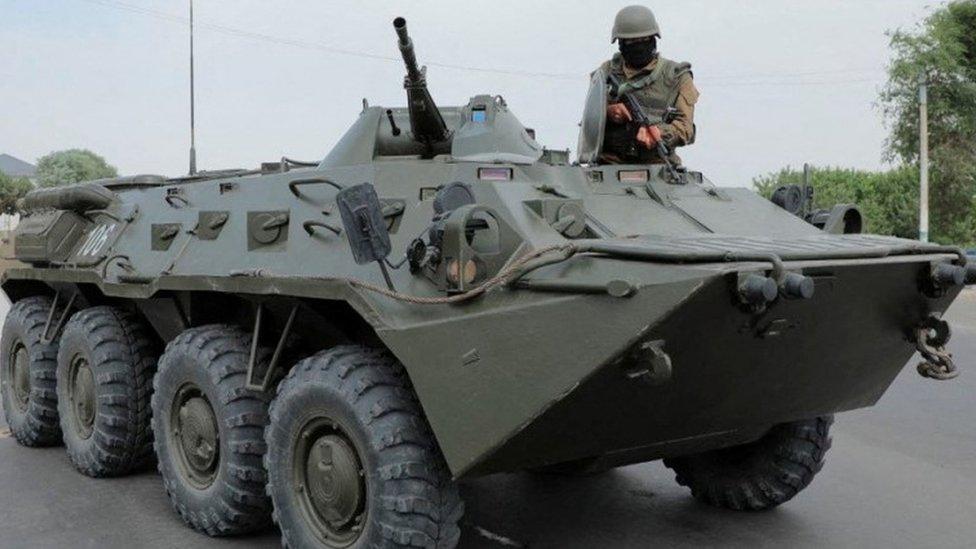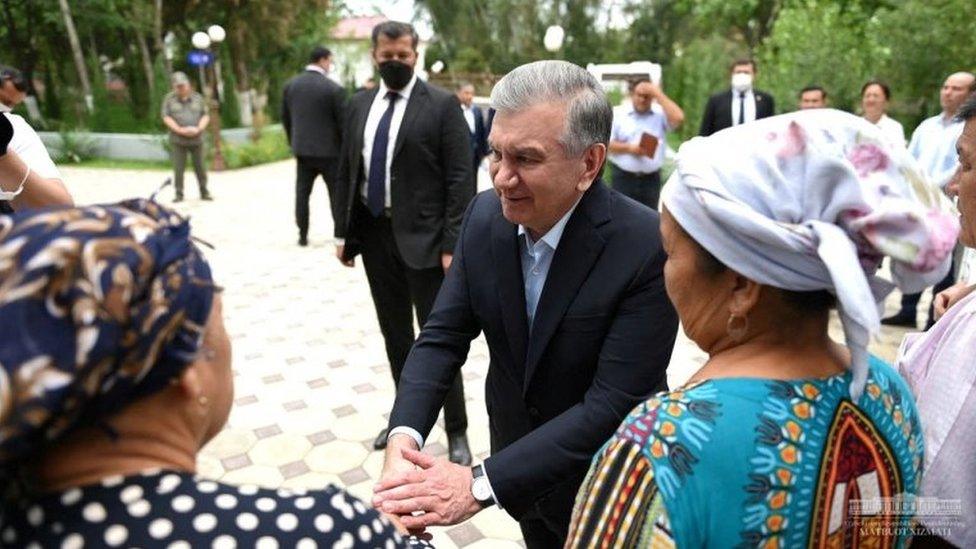Uzbekistan Karakalpakstan: At least 18 killed in unrest over right to secede
- Published

A lorry that was set alight in the protests in Nukus
At least 18 people were killed in the Uzbek region of Karakalpakstan when protests erupted last week over plans to limit its autonomy, officials say.
State prosecutors said more than 200 people were injured - many fewer than the thousands of people officials had said were being treated in hospital.
Clashes broke out with security forces when crowds protested at plans to curtail the region's right to secede.
President Shavkat Mirziyoyev now says the plans will not be carried out.
A month-long state of emergency has been declared in Karakalpakstan, an autonomous, mostly desert region near the Aral Sea of just under two million people in Uzbekistan, a country of 32 million with a long history of authoritarian rule.
According to the National Guard, 516 people were detained following unrest on Friday and Saturday in the regional capital Nukus, but many had now been released. Prosecutors also said the local airport had come under armed attack.
The rare outbreak of violence was prompted by plans to remove the region's constitutional right to secede. It led to President Mirziyoyev visiting Karakalpakstan twice over the weekend.

Troops are patrolling Nukus and a month-long state of emergency is in force in the region
At a meeting with local deputies on Sunday, he accused what he called malicious forces of trying to destabilise and undermine the situation in the Central Asian state.
He accused protest organisers of trying to "seize the buildings of local government bodies" in order to obtain weapons.
"Taking advantage of their numerical superiority, these men attacked law enforcement officers, severely beating them and inflicting severe injuries," he was quoted as saying by AFP news agency.

President Mirziyoyev visited Nukus on Sunday
Uzbekistan has a reputation for being one of the most repressive republics of the former Soviet Union, clamping down on any form of dissent.
The police and army are patrolling the streets of Nukus, after the state of emergency was declared.
An exiled opposition politician, Pulat Ahunov, said people were unable to move around and obtain information because of the state of emergency.
Mr Ahunov, who is chairman of the opposition Berlik party, said he feared the potential for the situation to escalate into an ethnic conflict between Uzbeks and Karakalpaks, a minority group with their own language.
Like Uzbeks, the Karakalpak are a Turkic people, but they are linguistically and culturally closer to Kazakhs.
"There are still rallies going on in many locations," he told Reuters news agency, speaking from Sweden. "Overall, I think that the situation is starting to stabilise, but there is another kind of danger. There have been facts of ethnic clashes between the Karakalpaks and the Uzbeks.
"The situation can totally spin out of control. It will not be about the status of Karakalpakstan, it will be about a conflict between the Karakalpaks and the Uzbeks. It is the most dangerous thing."
Earlier, AFP reported that videos appeared to show people dead and injured from the unrest, raising fears that the security crackdown had taken a high death toll.
Republic of Uzbekistan
Capital: Tashkent
-
Population 32 million
-
Area 447,400 sq km (172,700 sq miles)
-
Major languages Uzbek, Russian, Tajik
-
Major religion Islam
-
Life expectancy 68 years (men), 74 years (women)
-
Currency Uzbek som